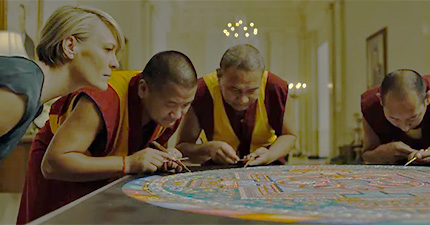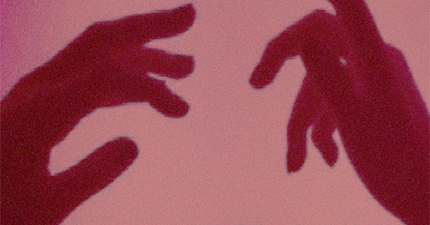I’m taking this class about Jungian analysis right now. One of the topics we looked at was the cultural complex. It’s a funny thing to look at—Jung’s goal with the work that he was doing was always individuation. He was coming out of a period of time, Nazism and fascism, that made him really doubt collective identity and group or cultural rituals. He responded to what he was experiencing by advocating for individual agency and identity. Individuation was his solution for having biases.
In the past, whenever I saw or experienced things that made me trust people less, I always found myself leaning on a very rugged kind of individualism. “If no one cares about me anyway then I’ll just rely on myself.” “I’ll make my own money.” “I’ll just mind my own business.” These are the kinds of things that I would tell myself.
It kind of works to some extent. Even if the goals that I create for myself don’t work out, these individualistic goals helped me move out of the shame of rejection. A lot of the time, this was just my own way of letting myself know that I am allowed to have a kind of singularity of experience, that no one can tell me what thoughts and feelings are mine and which aren’t.
More and more, as I get older, however—I’m feeling that individualism can’t solve some of the problems of what makes us mistrust community.
I understand that a lot of people are mistrustful of community spaces, especially these days. I looked it up as I was writing this article because I was curious. Apparently, 13% of adults in one survey lost a friend recently. 22% haven’t made a new friend in five years. As for the age group who were just starting their adult lives in 2020, a sixth of them are not in school or working a job. Now, I’m of the mindset that you don’t have to be working or in school to be creative or even make money. However, when you’re young, it’s really hard to find your way in the world and school and work are often places where people meet friends and find social context. These numbers are a sign that a lot of people feel a lack of social context right now.
A lot of us don’t trust each other right now. There’s the busy isolation of capitalism, the disorientation of the pandemic, and the pull of spectacle.
Personally, there’s all types of things that make me mistrust community right now—the lack of care around COVID that people I know showed, nonprofits that care more about branding than about the work that they are trying to do or maintain, and general weariness around the ongoing conflicts that are inevitable whenever a group of people come together. There’s also the sensationalized reports in local news about Asian women being attacked and far right politicians like Dr. Oz or Doug Mastriano running for public office. That kind of thing makes me not trust other people. I look around me as I run errands and wonder who would vote for a white supremacist who wants to make all abortion illegal. There’s also the stories that I hear from friends about people misappropriating funds raised by a mutual aid network and running off or sexual harrassment within organizing circles. And there’s just general life stuff too. Breakups and fights.
Sometimes I find myself talking shit. Sometimes I keep it to myself. Sometimes I crack jokes. All of these are signs of mistrust.
In the past, I think I would have done the asocial Aries thing. “I don’t need anyone anyway.” “I’ll just do my own thing and read my own books and live my own life.” That’s all still there, all of those strategies that did so much for me in my twenties.
Individualism as an ideology and individuation as a psychic process of integration refers to different things. We tend to think of John Wayne when we think of individualism, of resilience and self reliance and rugged masculinity even though individualism has a lot of other forms. There’s the American individualism of everyone being able to identify with a mobster on television, of someone who doesn’t see himself in society and makes his own money or protects his own people (who he also distrusts) but there’s also navel gazing individualism where curiosity is turned not towards current change but towards symbols that only reflect something for the self. This is abstraction or over intellectualization, of finding too much meaning in your own thoughts. There’s even peaceful individualism where you withdraw from participating socially in the pursuit of protecting your own tranquility at all costs.
Individuation is a different process and involves a dialoguing between inherited culture and self identity. This dialogue can show up as conflict, competition, or repetition. Jung believed that individuation was the goal of maturity. In the class I took, the instructor asked us whether we believed that to be true, informing us that Jung’s goal was shaped by his disgust and revulsion around national socialism, and inviting us to disagree.
So, I’ve been thinking about mistrust in community, individuality, and the neoliberal idea that freedom is the ability to decide what you want for yourself and to own your house.
There are some problems that you really just can’t solve on your own. This is what leftists say when they use the word systemic. It’s not a word that simply means the same thing as very or big or extremely. Systemic problems are problems that one person can’t solve on their own.
I don’t agree with the idea that cultural rituals are repetitive actions that we must find a way to liberate our individuality from. The idea that cultural rites are a form of tribalism like the wearing of football colors is like saying that gay culture can be reflected by rainbow socks. Rituals are repetitive tasks and repetition can be both powerful and socially transformative.
So often, we are trying to make and continue gay culture and life while distrusting gay communities. We create and continue asian culture and life while distrusting asian communities. There is a type of liberation in cultural practice that isn’t just about saving the self by making the culture obsolete. I think that this is why so many people feel a resistance to being saved from their own culture even when they critique and distrust those cultures from the inside.
I don’t trust community or other people all the time. How could I? I don’t expect any of us to. And, yet, the pain that comes out of mistrusting community will never be solved by individuality. It will not be solved by owning your own shit.
It isn’t easy to feel the pain of mistrust. It is easier to go where we have the strongest chance for strength and neoliberalism will always make individual autonomy easier to choose than collective freedom.
This isn’t a heal-yourself-fast article. It’s not a quick tip kind of article. I don’t know how to heal my mistrust in community yet and that needs to be okay. I have to feel the pain of mistrust and I have to listen to what it has to say. This pain is a pain that knows about all of the problems that none of us can solve alone. It has a great deal of insight to share and, when that pain is recognized, the problems that it knows about it also recognized. These are problems that individual strength wants very, very badly to pretend do not exist.
And then there is the joy. Pain is not intrinsically more complex or meaningful than joy and, alongside my mistrust of community, is also a love of community. I love it when people come together and I’ve loved all the groups that I have been a part of, even the religious groups that I was raised in and the white queers who didn’t invite me to things. I’ve loved all of the groups with infighting or weird politics and even the friends who couldn’t stop partying during COVID surges. This love, which exists alongside my mistrust, also knows the problems that individualism needs to dismiss.
There’s mistrust in and of community and then there’s love in and for community. Both of these things are bone deep. Neither of them are resolved by individualism and neither of them are in charge of my life.
And so there’s mistrust of community. “I don’t trust anyone anymore.” You go on Twitter and you can find dozens of tweets along these lines. This statement is true and, yet, there is also “I trust so so hard and so much.” There’s also “I want to trust more than I can right now” and “I will show myself how to love when I cannot trust.”
I’d like to think that Jung was trying to figure out how to love people he mistrusted. He once wrote, “I have trusted men friends and been disappointed by them, and I have mistrusted women and was not disappointed.” He was afraid of his mother and once saw her at night as a child with her head detached from her body.
1 of 158
>>>


